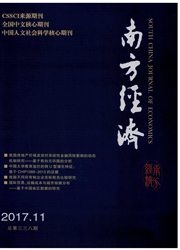

 中文摘要:
中文摘要:
创业者是选择模仿还是创新关乎企业绩效及创业成败。传统理论认为创新道路更容易成功,原因是创新能够帮助企业构筑竞争优势。但国内外实践均表明,大量中小型企业恰恰是凭借模仿实现成功创业,中国情境下新创企业模仿型高于创新型的现象则更加明显。本文将创业者的创新选择与机会开发联系起来,认为创业者选择的原则是在约束条件下权衡何种机会开放方式能够增进创业绩效,通过194份新创企业样本分别考察模仿型机会开发和创新型机会开发对创业绩效的影响,以及内外部情境因素对二者关系的调节作用。研究发现,模仿型机会开发与创新型机会开发均能促进创业绩效,但在不同情境下作用效果有别:模仿型机会开发与创业绩效间关系对情境依赖不明显;创新型机会开发对情境依赖明显,越发激烈的外部环境会削弱创新型机会开发对创业绩效的促进作用,创业者自身行业经验的增加又会增强这一关系。可见模仿型还是创新型机会开发不应是简单的孰优孰劣,而是创业者在约束条件下理性战略选择的结果。
 英文摘要:
英文摘要:
Imitation or innovation is a key factor in entrepreneurial performance and entrepreneurial success. According to traditional theories innovation is easier to success because of its competitive advantages. However, the majority of medium and small - size firms are imitation entrepreneurship, and especially in China. This paper joins the choice of innovation and opportunity exploitation together to explore whether the performance is the principle of entrepreneurs' choice and uses 194 new ventures to investigate the relationship between opportunity exploitation and entrepreneurial performance, both imitative opportunity exploitation and innovative opportunity exploitation, as well as the moderate effect of both inner and outer contingency matters. The conclusions are: both innovative opportunity exploitation and imitative opportunity exploitation are positive correlated with entrepreneurial performance, but the moderate effect is different: imitative opportunity exploitation has no contingent effect on entrepreneurial performance while innovative opportunity exploitation does, and the contingent effect shows that the relationship between innovative opportunity exploitation and entrepreneurial performance is decreased when coming up with high competitive environment, while increased when entrepreneurs owning more industrial experiences. On the basis of the above conclusions, we can judge which opportunity exploitation is superior or inferior assertively, because how to choose opportunity exploitation is proved to be entrepreneurs' rational decision under the given constraints.
 同期刊论文项目
同期刊论文项目
 同项目期刊论文
同项目期刊论文
 期刊信息
期刊信息
